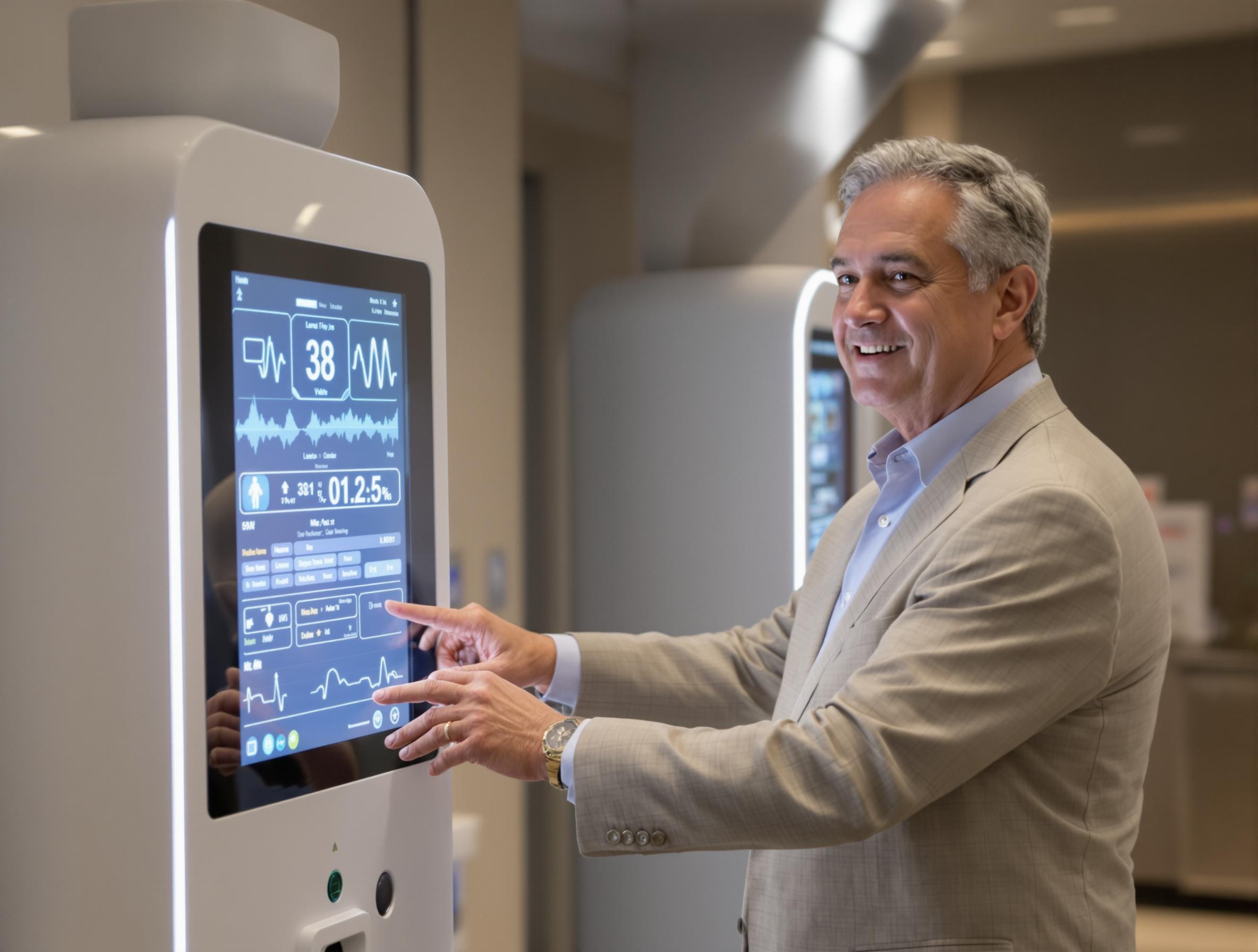How Long Does It Take to Improve Cardiovascular Health?

Key Takeaways:
- Most people can start seeing improvements in blood pressure, cholesterol, and fitness within weeks of adopting heart-healthy habits.
- Long-term cardiovascular benefits—including weight loss and cardiac function—often develop over 3 to 12 months with consistent lifestyle changes.
- Individual factors like age, existing conditions, and consistency play a significant role in how quickly cardiovascular health improves.
When it comes to cardiovascular health, many of us want immediate results. After all, our heart is vital to survival, so it’s natural to seek quick improvements. Whether you’re adopting healthier habits, recovering from an illness, or looking to manage risk factors like high cholesterol or blood pressure, you might wonder: How long does it take to see positive changes in cardiovascular health?
The answer is not as simple as a one-size-fits-all timeline. At Mobile Care Health, we know that cardiovascular health improvement depends on several factors, including your starting point, lifestyle changes, and any pre-existing conditions. Improving your heart health can become a more manageable and targeted journey with the right tools and personalized support.
How Long Does It Take to Lower Blood Pressure?
High blood pressure, also known as hypertension, is one of the most common cardiovascular risk factors, affecting millions of people globally. The good news is that lowering blood pressure is achievable with lifestyle changes and medication.
Short-Term Timeline (1-2 Weeks):
Within a few days to weeks, you can start seeing a reduction in blood pressure by adopting heart-healthy behaviors, such as reducing salt intake, engaging in regular exercise, and cutting back on alcohol. For instance, a study published in the Journal of the American Heart Association showed that a combination of exercise and a low-sodium diet could reduce systolic blood pressure (the upper number) by 5-10 mmHg in two weeks.
Long-Term Timeline (3-6 Months):
It typically takes 3-6 months of consistent lifestyle changes for sustained, significant improvements. This includes regular exercise, stress management, healthy eating, and possibly medication for more severe hypertension. Over time, maintaining these habits can lower your blood pressure to a healthy range and reduce your risk of heart disease, stroke, and kidney damage.
How Long Does It Take to Lower Cholesterol?
Cholesterol plays a crucial role in cardiovascular health. High levels of LDL (bad cholesterol) can cause plaque buildup in arteries, leading to atherosclerosis and increasing the risk of heart attacks and strokes. Lowering cholesterol is key to improving heart health.
Short-Term Timeline (4-6 Weeks):
Suppose you focus on improving your diet by increasing your intake of fiber-rich foods, healthy fats (like those from avocados and fish), and reducing saturated fats. In that case, you can expect to see initial improvements in cholesterol levels within 4-6 weeks. For example, consuming foods rich in omega-3 fatty acids, such as salmon or flaxseeds, has lowered LDL cholesterol over several weeks.
Long-Term Timeline (3-6 Months):
Sustained changes in lifestyle and nutrition typically lead to a more significant reduction in cholesterol levels over 3-6 months. Consistently avoiding trans fats, managing stress, and maintaining regular physical activity can help improve both LDL and HDL (good) cholesterol levels. In some cases, cholesterol-lowering medications may be necessary to achieve optimal levels.
How Long Does It Take to Improve Cardiac Function?
Cardiac function refers to the heart’s ability to pump blood effectively throughout the body. Conditions such as heart failure, arrhythmias, or a history of heart attacks can impair cardiac function. Fortunately, exercise and medication can significantly help.
Short-Term Timeline (1-2 Months):
For individuals recovering from heart surgery or a heart attack, the first few months are crucial for rebuilding strength and improving cardiac function. Regular, low-impact aerobic exercise (like walking, swimming, or cycling) can start improving heart function within the first 1-2 months. For many people, even light activities like walking can make a noticeable difference in stamina and energy levels.
Long-Term Timeline (6-12 Months):
Cardiac function can improve significantly over the course of 6-12 months, particularly with the help of regular physical therapy, rehabilitation, and heart-healthy habits. Patients recovering from a heart attack or those living with heart disease often experience improved ejection fraction (the amount of blood the heart pumps with each beat) with consistent treatment and exercise.
How Long Does It Take to Lose Weight and Improve Heart Health?
Excess weight is a significant risk factor for heart disease. Losing weight can dramatically reduce the strain on your heart and lower your risk for high blood pressure, high cholesterol, and diabetes—all of which can contribute to cardiovascular disease.
Short-Term Timeline (1-3 Months):
If you follow a calorie-controlled diet, exercise regularly, and focus on sustainable weight loss, you can expect a reduction in body weight, blood pressure, and cholesterol levels in as little as 1-3 months.
Long-Term Timeline (6-12 Months):
Sustained weight loss typically takes longer, with most people achieving their desired weight loss goals over 6-12 months. During this time, heart health improvements will also continue accumulating, leading to a lower risk of heart disease, stroke, and type 2 diabetes.
How Long Does It Take to See Improvements in Physical Fitness?
Another key component of cardiovascular health is the heart’s ability to pump blood efficiently during physical activity. Regular aerobic exercise strengthens the heart muscle, increases circulation, and boosts overall cardiovascular fitness.
Short-Term Timeline (1-2 Months):
Suppose you’re new to exercise or returning after a period of inactivity. In that case, you can expect to feel some improvements in endurance, energy levels, and overall fitness within the first 1-2 months of consistent cardiovascular exercise. As your fitness levels improve, you’ll notice better stamina, less shortness of breath, and the ability to handle physical tasks more easily.
Long-Term Timeline (6-12 Months):
Those aiming to enhance athletic performance or significantly improve cardiovascular fitness typically take 6-12 months of dedicated exercise. By this point, aerobic capacity (VO2 max), heart rate recovery, and overall stamina will show marked improvement.
Factors Affecting the Speed of Cardiovascular Improvement
While we’ve highlighted some general timelines for heart health improvements, it’s important to note that the speed of change can vary depending on several factors, including:
- Age: Younger individuals often experience faster improvements than older adults, though regular exercise and healthy habits can still significantly benefit older adults.
- Baseline Health: Individuals starting with high blood pressure, high cholesterol, or other cardiovascular conditions may take longer to achieve results.
- Consistency: The more consistently you adopt heart-healthy habits (exercise, diet, stress management), the faster you’ll see results.
- Medication and Medical Care: If you’re prescribed medication, such as blood pressure or cholesterol-lowering drugs, it can help accelerate improvements, but lifestyle changes remain crucial.
Taking Charge of Your Heart Health
While there’s no magic timeline for improving cardiovascular health, the important thing is to start making changes today. Even small steps—like cutting back on salt, increasing physical activity, and managing stress—can lead to improvements over time.
If you’re unsure where to start, Mobile Care Health can help. Our expert care team is ready to support you in monitoring your heart health, offering guidance on lifestyle changes, and tracking progress to ensure that you’re on the right path to a healthier heart and a longer life.
Start your journey to better cardiovascular health today. Connect with Mobile Care Health for expert care and personalized support that puts your heart health first.





